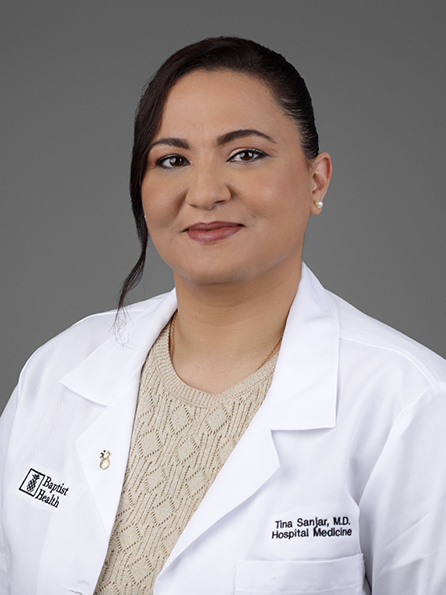As we celebrated National Hospitalist Day 2025 and reflect on this year’s theme—the ABCs of Hospitalists’ impact—Advancing care, Building community, and Creating opportunity—it is fitting to recognize how hospitalist leadership is crucial in launching a graduate medical education (GME) program. Hospitalists bring a unique perspective to residency training, blending clinical experience with systems-based practice, ensuring that future physicians are better equipped to navigate the growing and changing complexities of modern healthcare.
For me, this theme resonates deeply because it embodies the very reasons I am passionate about being a hospitalist and a leader in hospital medicine, and helped launch a new internal medicine residency program in my community. It’s an incredible opportunity to advance patient care, foster collaboration, and create meaningful opportunities for residents, faculty, and the community alike.
Advancing Care
Hospitalists are at the forefront of inpatient medicine, where we drive quality improvement, patient safety, and evidence-based practice. By integrating bedside teaching with real-time clinical decision-making, hospitalists create a dynamic learning environment that focuses on high-value care, ensuring that patient-centered, data-driven approaches that embody the aforementioned principles in practice remain central to decision making.
Mentoring and teaching residents on hospitalist-led initiatives—such as sepsis management, multidisciplinary rounds, and transitions of care—not only enhances their clinical skills but also instills a systems-based approach to medicine. The asset of this training is that it will extend beyond hospital medicine. Residents will carry these principles into any specialty they choose, ensuring that the impact of hospitalist-led education reaches across the entire healthcare system.
Being part of a new GME program excites me because it allows me to embed these core values into the program’s foundation from the very beginning. By prioritizing quality improvement and patient-centered, high-value care, we ensure that our residents graduate as competent clinicians who are equipped to navigate the increasing complexities of the healthcare system and be at the forefront in advancing care.
Building Community
GME thrives on collaboration, and hospitalists are uniquely positioned to build strong, interconnected communities within healthcare systems. As dedicated inpatient physicians, hospitalists work closely with other specialists, nurses, case managers, and ancillary staff, effectively modeling interdisciplinary teamwork for residents. Hospitalist leadership in GME fosters an inclusive learning environment where teamwork and communication are emphasized as core competencies.
Moreover, launching a new residency program offers an incredible opportunity to strengthen ties between the hospital, local medical schools, and community physicians. By engaging in outreach, mentorship, and faculty development, hospitalist leaders create a supportive ecosystem where both residents and faculty can thrive.
For me, building this sense of community is one of the most rewarding aspects of starting a new residency program. The relationships formed within a training program do not just shape careers—they create lifelong professional networks. Hospitalists are centrally positioned to cultivate these connections, ensuring that residents not only feel supported during training but that they also remain engaged with their medical community long after graduation.
Creating Opportunity
Launching a new GME program under hospitalist leadership also opens doors for professional and academic development at multiple levels. For residents, it provides hands-on exposure to hospital medicine, opportunities for scholarly work, and pathways to leadership roles within hospital systems. For faculty, it presents avenues to engage in medical education, curriculum development, and mentorship, enriching the careers of residents beyond clinical practice.
Additionally, hospitalist-led GME programs can address workforce shortages by training physicians who are well-prepared for careers in hospital medicine, primary care, or subspecialty fields. By creating a structured yet innovative and inclusive training environment, hospitalists help shape the next generation of physicians who will lead the future of inpatient care across specialties and health systems.
Personally, I find immense fulfillment in the opportunity to mentor and guide residents as they embark on their medical careers. There is something incredibly special about witnessing a physician’s growth from interning to independent practice; being able to contribute to that unique journey is a privilege. Through my role in launching this new residency program, I hope to create opportunities that will not only elevate residents but also strengthen our healthcare system as a whole.
Conclusion
Hospitalists are in environments that naturally fertilize educators, system leaders, and patient advocates, making them ideal pioneers for launching new GME programs. Their commitment to Advancing care, Building community, and Creating opportunity ensures that residency training is not only clinically rigorous but also deeply impactful.
For me, these principles are the driving force behind my passion for Hospital Medicine and my excitement in helping to establish a new Internal Medicine residency program. This journey is not just about training physicians—it’s about shaping a culture of excellence, collaboration, and innovation in patient care. As we celebrate National Hospitalist Day, we recognize the invaluable role of hospitalist leadership in shaping the future of medical education and the broader field of hospital medicine.
2025 National Hospitalist Day HM Voices Contest Submission

Dr. Sanjar
Dr. Sanjar is an associate program director of the internal medicine residency program for hospital medicine at Baptist Health South Florida and a community-based assistant professor of translational medicine at Florida International University’s Herbert Wertheim College of Medicine, both in Miami.